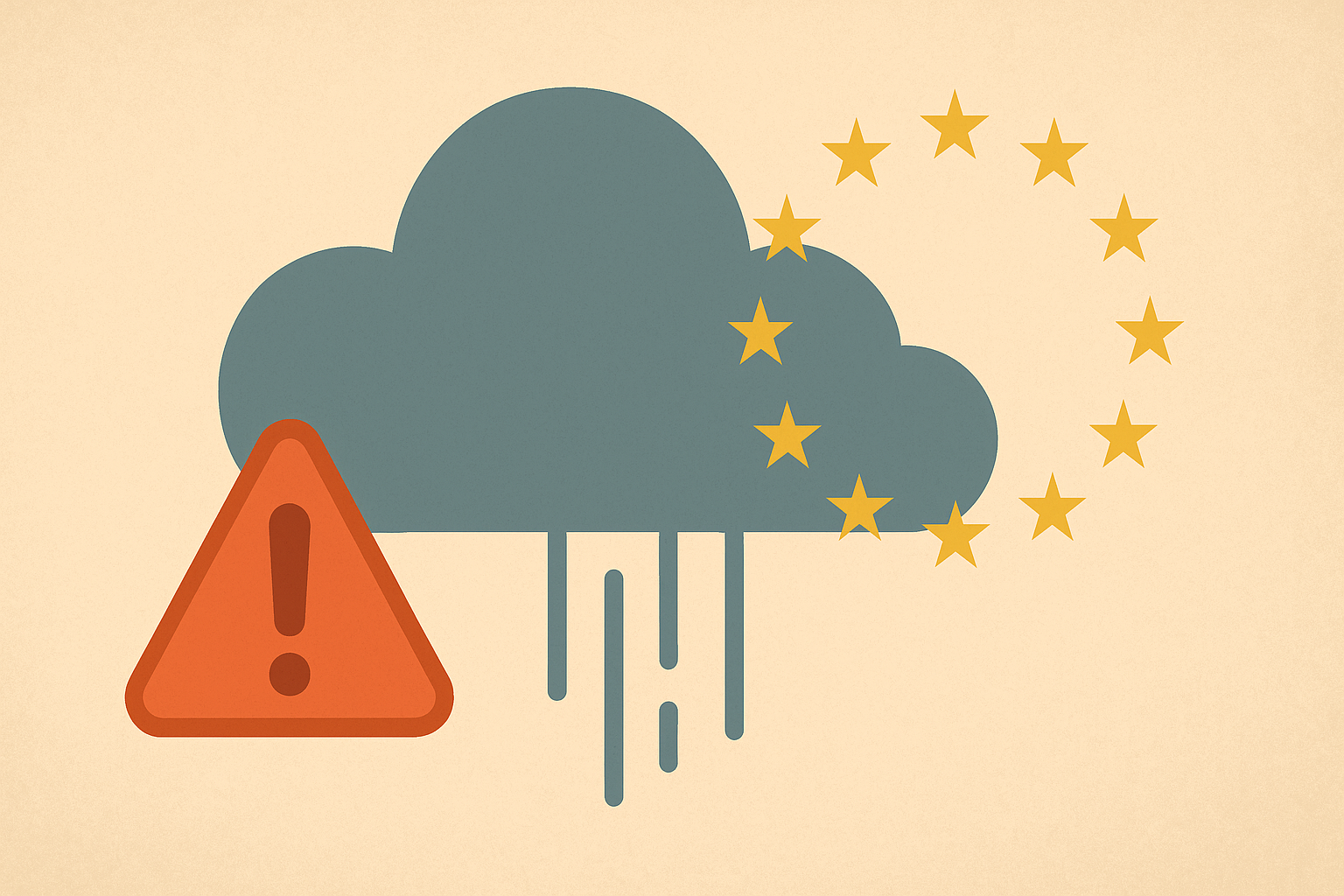A brief outage at Amazon Web Services (AWS) earlier this week offered a small but telling glimpse into how dependent the modern world has become on a handful of US tech giants for digital infrastructure. The disruption — which temporarily took down popular apps including Duolingo and Roblox — was quickly resolved, but it underscored a deeper concern: Europe’s growing reliance on foreign-controlled cloud systems and its lack of strategic autonomy in the digital economy.
A Warning Sign for Global Dependence
While the outage was caused by a technical glitch, analysts say it highlights the potential risks if such systems were ever weaponised for economic or political leverage. With AWS, Microsoft Azure, and Google Cloud controlling nearly two-thirds of global cloud capacity, these platforms have effectively become chokepoints for global commerce and communication.
The concern isn’t purely theoretical. Observers warn that under a future administration — particularly one led by Donald Trump, who has previously sought to use economic tools as political weapons — the US could restrict access to American cloud infrastructure for certain foreign entities or regions.
Europe’s Strategic Weakness
The EU has long sought “strategic autonomy” in key sectors, but progress has been slow. Despite a rapidly expanding cloud market — which has doubled since 2021 to around €60 billion annually — European providers have failed to gain ground, maintaining a modest 15% market share. Most of the region’s businesses and governments continue to rely on US-based platforms for essential data storage and digital services.
Brussels’ strategy has focused more on regulation than investment. Instead of heavily subsidising European providers, the EU has used its large consumer market to impose data protection and competition rules. But such regulatory tools are proving inadequate when national security and digital sovereignty are at stake.
The U.S. Advantage and Global Responses
The US cloud sector’s dominance stems largely from private-sector innovation and early investment. In contrast, China built its domestic cloud industry with massive state backing, insulating it from Western influence. Australia has taken a different path — partnering closely with Washington to build a “Top Secret Cloud” infrastructure underpinned by AWS.
Europe, however, remains caught in the middle. While AWS has announced a “European sovereign cloud” to reassure customers — run by EU-based entities and management — the US Cloud Act still gives Washington potential legal authority over the data stored within these services. That risk looms larger if a future US president decides to test the boundaries of that law.
The Way Forward for the EU
Experts suggest the EU should adopt a more assertive model, similar to how it regulates 5G suppliers, by limiting access for high-risk cloud providers. But doing so would require political will and financial commitment — including accepting the environmental and energy burdens of building large-scale data centres.
The Netherlands, for example, has been vocal about reducing reliance on US providers but has simultaneously imposed restrictions on new data centre construction due to power and water concerns.
A Strategic Crossroads
From energy to defence, Europe has repeatedly struggled to act cohesively in crises. Cloud infrastructure may soon join that list of vulnerabilities. While the probability of the US deliberately cutting off Europe from its cloud services is low, the potential fallout would be immense.
If the EU truly wants to insulate its economy from geopolitical risks — and “Trump-proof” its digital infrastructure — it must start treating cloud computing not as a commercial convenience, but as a strategic necessity.








